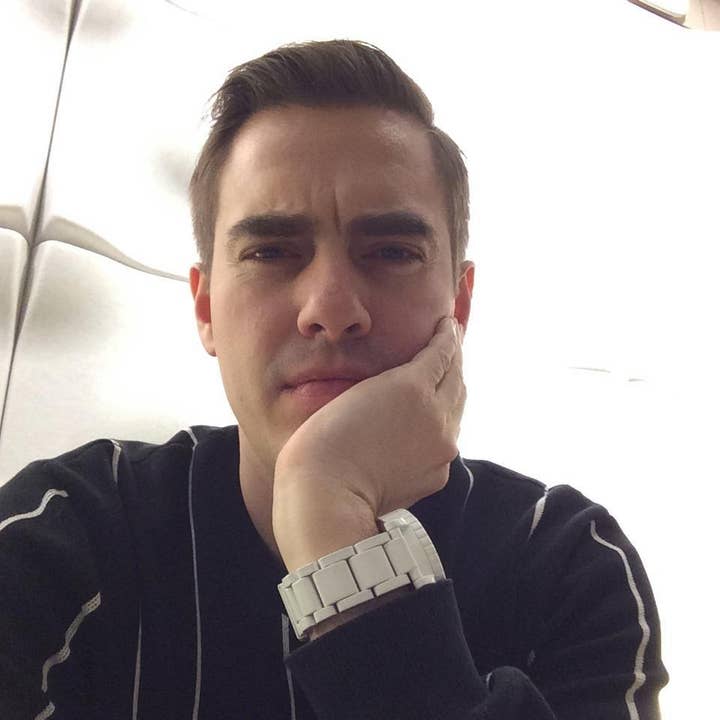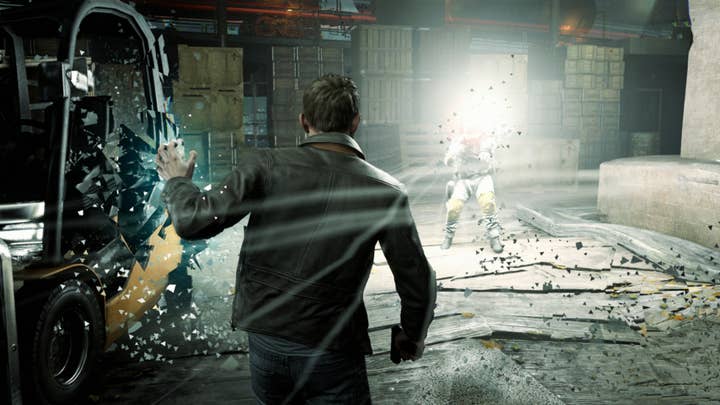The alchemy of Remedy
Thomas Puha explains how the independent studio known for single-player AAA narratives is adapting to an industry that seems increasingly driven by other experiences
"The one constant in the games industry is change," Remedy Entertainment head of communications Thomas Puha told GamesIndustry.biz at the Montreal International Games Summit last month.
"You always have to adapt to how things are going. That's what Remedy has been doing, especially in the last couple of years."
The last couple years have certainly been eventful for Remedy Entertainment. In 2016 it launched its most recent big game, the Xbox One exclusive Quantum Break, to mixed reviews. Shortly after, it appointed Tero Virtala as its new CEO, helping transition Remedy from being a single-project studio into multi-project development while pledging a move to shorter dev cycles. And in the midst of all that, it decided to go public last year.

The seeds for that change were planted years earlier, as industry trends seemed to grow more hostile to a company like the Remedy of old. AAA quality single-player experiences still get made, but they're no longer the sole template of the industry's biggest successes. The next big thing is as likely to be a free-to-play MOBA or an Early Access shooter, an ever-changing game-as-a-service. The only real stories of these could be not so much crafted by writers as recounted by players from one to another.
Puha said Remedy's recent spate of changes have been adapting the company to the market, allowing the studio to capitalize on what it does well while still maintaining a viable business. Working on multiple games allows them to hedge their bets between projects, give employees some choice as to what they would like to work on, and juggle projects where they own the IP involved with ones where they don't. At the moment, Remedy's announced slate consists of two games: Project 7 and the story mode for Smilegate's first-person shooter Crossfire 2.

When asked if there was some pride swallowing involved for Remedy to handle work-for-hire on the campaign mode of another company's multiplayer-focused game, Puha noted that it's fairly common for large games to have one studio handle the campaign while another focuses on multiplayer, pointing to Call of Duty titles and Star Wars: Battlefront 2 as examples. On top of that, he said it's not that different from the studio's past work.
"[Crossfire 2] is the first time we're doing a first-person shooter, obviously, so how do we bring that 'Remedy-ness' into it? How do we define that?"
"You make it sound worse than it really is," Puha said. "While we worked on Quantum Break and did the creative work on that, it's still Microsoft's IP. It's their baby. They put the funds into it so they had a lot of say into what kind of game that would be. In the case of Crossfire, the nice thing was we were approached by Smilegate. They saw Remedy did good story and they wanted that. Remedy had a lot of people who were interested in doing a first-person shooter even though the studio hadn't before, and they got a lot off creative freedom to do it."
On top of that, Crossfire 2 also plays well into the company's strategy of building its brand with new audiences. The game also presents a chance for the studio to build its brand among first-person shooter fans, as well as in Asian markets where Crossfire is huge, but Remedy is not as well known.
"It was a really good opportunity for us to try to do something really different," Puha said. "There are a lot of challenges. It's the first time we're doing a first-person shooter, obviously, so how do we bring that 'Remedy-ness' into it? How do we define that? It's been an interesting challenge."
As for Project 7, the company has said little about the game itself beyond confirming it as a "cinematic third-person action game," which sounds very much like Remedy's speciality. It will sport some changes to the Remedy formula, as the company has promised it will be a "long-lasting experience" with "the deepest game mechanics yet in a Remedy game."
Those specific changes seemed to loom large when Puha discussed the plight of single-player games, a topic of much discussion in recent months.
"There's the crazy part of making a game where it takes four or five years, and then the game is over [for the player] in like a weekend"
"Obviously that's something we've given a lot of thought to, not just due to recent discussion but also over the last several years," Puha said. "There's the crazy part of making a game where it takes four or five years, and then the game is over [for the player] in like a weekend. From a creative perspective, even when we made Alan Wake, it was like we spent all this time creating the characters, the universe, the rules and everything. It's a place where you want the player to spend a longer period of time, and that's hard to do in the traditional single-player space.
"The reality is the traditional AAA single-player experience is just really expensive to make. The expectation level from gamers is really high in terms of how long the game is, what sort of features it has, how good the production values are. All those things are very expensive to do. And if you go back 10 years, you could still say the console market is roughly the same size. In the end, the audience you're selling to is relatively the same size but the cost of making the game is ten-fold these days. So that's an obvious problem."
Some of Remedy's recent moves have been in part to address that cost. It brought 505 Games on to publish Project 7 in a deal that sees Remedy not only receive €7.75 million in development funds, but also retain intellectual property rights to the game. The IPO also brought in money Puha said will help put it in position to not just continue making games but doing so while retaining control of their IP and giving them more control over how their titles are presented to the market. And with multiple teams at work, the studio will also retain some flexibility to continue taking on work for other partners along the lines of the Crossfire 2 campaign.
All of that will hopefully make it possible for Remedy to succeed into the future making the sort of games Remedy is known for in the way it wants to make them, but Puha knows it doesn't guarantee it.
"We have this saying at Remedy: 'It's just really hard making games,'" Puha said. "And it's both the developer's and publisher's responsibility to create something at a sensible scale with a sensible budget and that there's a market for, right? But there's no escaping the fact production costs a lot more than it did before.
"But from our perspective, our tools right now are in a really good shape, the technology is in really good shape. So we're able to create a lot faster than we were able to before. Productivity has gone up, and I think with our own technology, it scales up pretty well. We spent a long time to make sure we could support two different projects... In Remedy's case, we have a long history and we can prove we've been successful. We've survived this long, we've built really unique games. We know how to do that, and we're going to be better at it going forward."
Disclosure: MIGS has a media partnership with GamesIndustry.biz, and paid for our travel and accommodation during the event.
